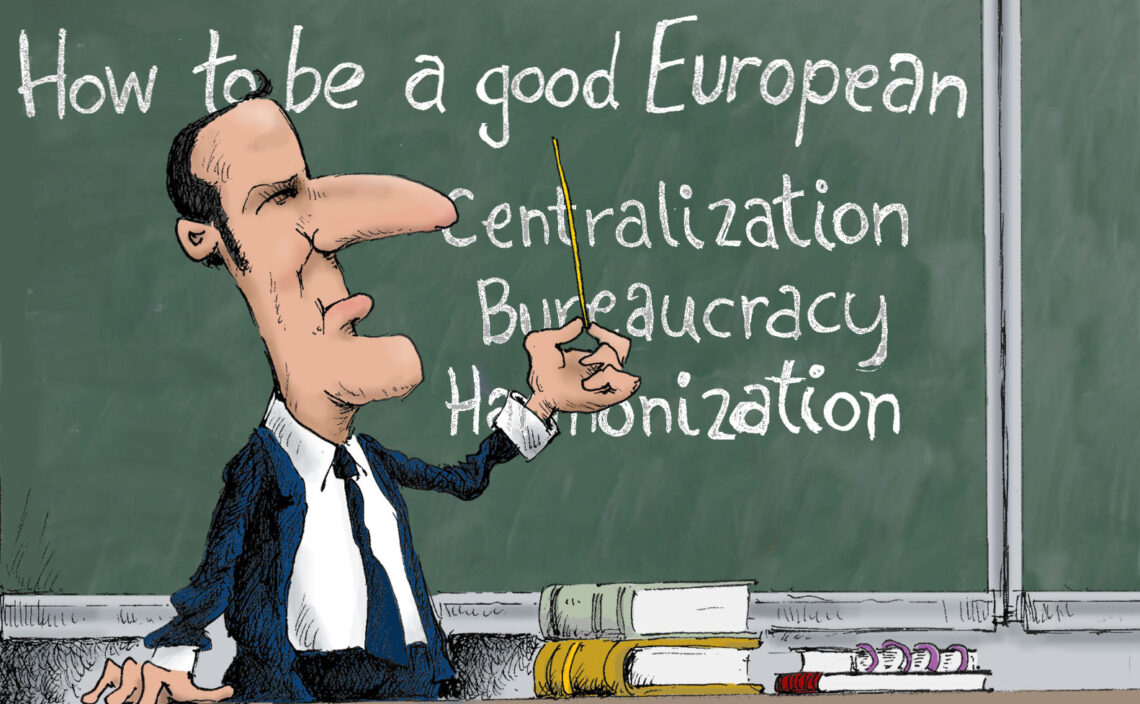Central Europe and EU cohesion
French President Emmanuel Macron’s visit to Poland was an effort to offset post-Brexit centrifugal forces pulling at the EU. Unfortunately, the most of his remarks consisted of lecturing Central European states about the benefits of harmonization.

On February 3-4, French President Emmanuel Macron visited Poland. It was an interesting trip, as Mr. Macron had previously criticized Central European governments on issues of governance, their low labor costs, their lower burden of social security and their reluctance to accept migrant quotas.
This time, it appears that he wanted to hedge against centrifugal movements in the European Union after Brexit. President Macron, putting on airs as the “godfather” of “liberal” Europe and a global ethical leader, also lectured his audiences in Warsaw and Krakow on how to be a good European.
The European policies of France and Mr. Macron are, however, not in Central Europe’s interests. He is advocating a system of European defense, and in November declared NATO “brain dead.” While a robust European defense is desirable, it is not realistic at the moment. Poland rightfully trusts NATO and a close alliance with the United States as a better guarantor of its security. Meanwhile, Mr. Macron may be overly fearful that the U.S. is using Warsaw as a Trojan horse for a greater U.S. influence in Europe.
Ignoring local identities
Several French leaders have turned their backs on the European policy of former President Charles de Gaulle. They have pushed for a centralized European nation in the French image, dominated by a powerful elitist bureaucracy that broadly ignores local identities – even the French one. This movement has gained momentum in other countries, supported by bureaucrats and politicians who want to protect their power and privileges.
Yet Europe’s strength is in its heterogeneity and the potential that regional competition offers. President Macron was right in saying that Europe should be more than just a single market with the four freedoms. However, his definition of this “more” is problematic, and he confuses the term “Europe” with the institution of the EU itself.
Europe is a diverse cultural area but is based on Christian traditions. The European Union is an institution which grew from the principle that states would agree to join it to further common interests, especially the free exchange of goods, services, people and capital.
The countries in Central Europe have proven to be valuable and responsible member states that strengthen the European Union’s global position.
Other functions were added, but unfortunately bureaucracy became excessive on the national and EU levels. A zeal for harmonization grew, limiting Europe’s wealth of variety and regional identities. No national or EU-level bureaucracy will ever be able to express a European identity, especially if it eliminates local strengths through harmonization and ignores Europe’s Christian foundations.
President Macron is certainly not the only European leader promoting an “ever-closer Union” – essentially a transfer Union. But it is exactly this attitude which enabled British politicians to convince voters to accept Brexit. Sweet talk alone in Poland and other countries will not help maintain European cohesion.
The unfortunate and irresponsible plan to allocate migrants to member countries encourages immigrants to try to cross the Mediterranean, even at the risk of drowning. It also ignores individual countries’ rights to protect their identity and internal security. New rules on posting workers – mainly pushed by Germany and France – were a breach of the fundamental EU principle of free exchange of services and would have severely damaged business in Central Europe. European Commission President Ursula von der Leyen, supported by Paris and Berlin, announced initiatives to harmonize social security systems across the bloc, a move which again would discriminate against Central Europe.
Central Europe does not need pontificating from Western European politicians. The countries managed to shed the Soviet yoke and have developed into thriving democracies. Joining the European Union was a great opportunity and supported their efforts to develop.
People in Central Europe appreciate and have long supported EU membership. Countries in the region have proven to be valuable and responsible member states that strengthen the European Union’s global position.
